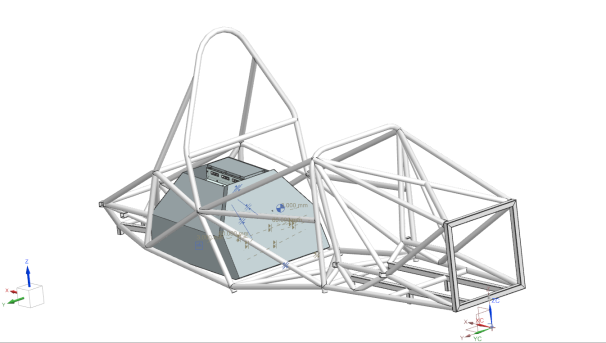2022-2023 FSAE Electric Design Competition
This year, the UNC Charlotte Department of Mechanical Engineering and Engineering Science has undertaken the project of designing and building a Formula SAE EV car to attend the FSAE competition in the Spring of 2023.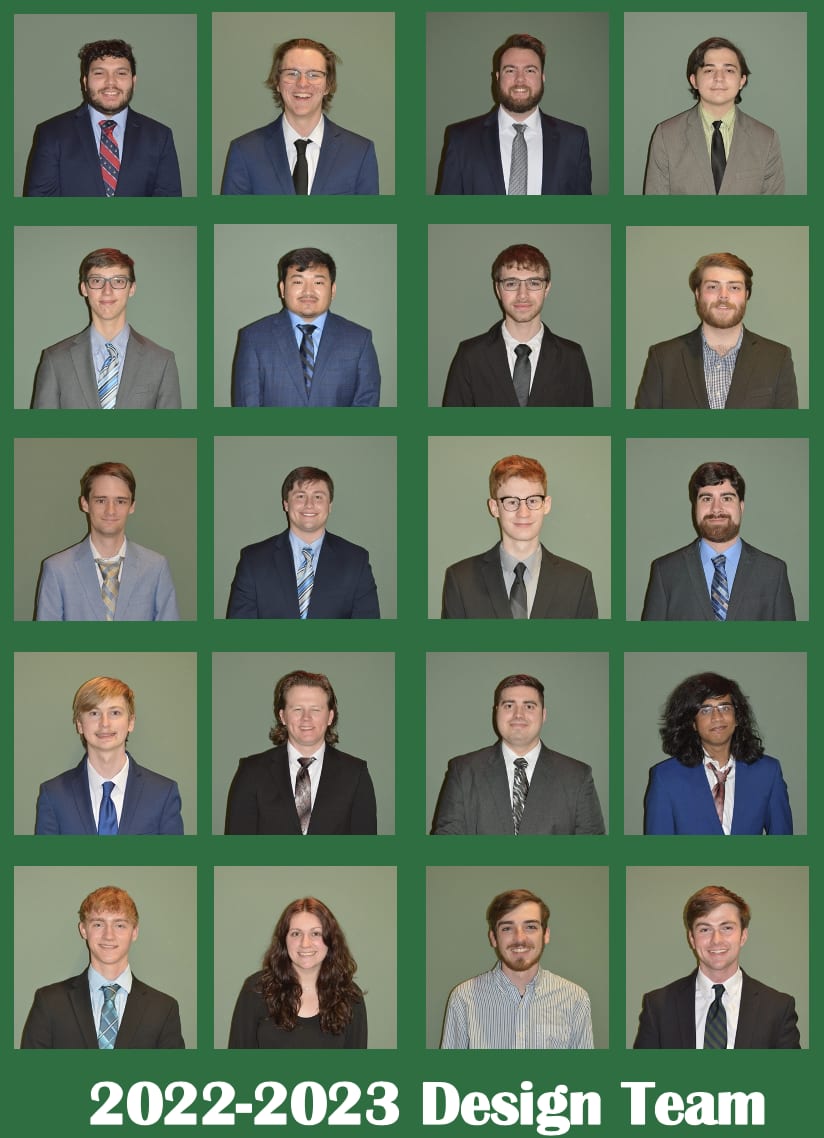 Formula SAE is a Student Design Competition in which students design, build, and race a single-seater, open-wheeled race car. With the automotive industry leaning towards electrification, the 49ers Racing team made the decision to venture into a new series of competition in Electric Vehicles.
Formula SAE is a Student Design Competition in which students design, build, and race a single-seater, open-wheeled race car. With the automotive industry leaning towards electrification, the 49ers Racing team made the decision to venture into a new series of competition in Electric Vehicles.
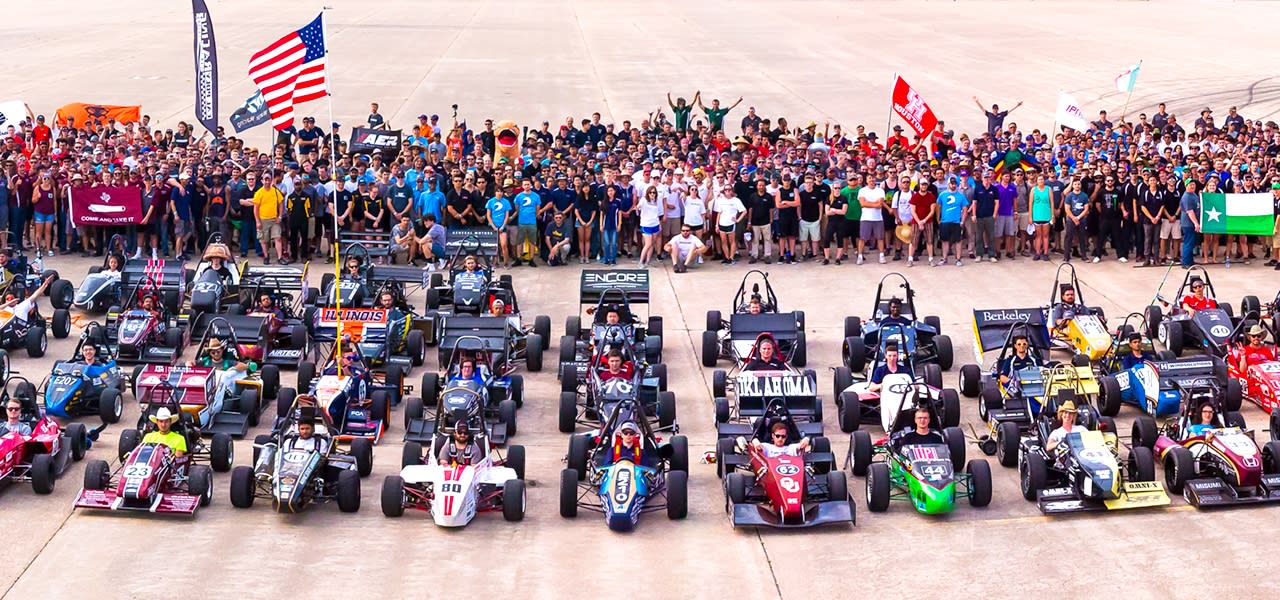 While a new venture is great for student training and education, it comes with many new costs as the challenge presented has a vastly different solution to that of an internal combustion vehicle.
While a new venture is great for student training and education, it comes with many new costs as the challenge presented has a vastly different solution to that of an internal combustion vehicle.
Our team operates on a very strict budget every year and this year our total cost has been estimated at $40,000. With money allocated for all sub-teams, our budget is broken down as follows: $25,000 for powertrain, $3,900 for Vehicle Dynamics, $4,000 for Chassis, $3,150 for Low Voltage Electronics, and $1,700 for Ergonomics.
This is year's powertrain team will be designing and building a complete powertrain system that includes: liquid cooling and 600 18650-batteries. The system will have 420 Volts Maximum and a 6.48kW/h battery configuration. The car is projected to have a max output of 167 HP, driven by a single Emrax 228 AC synchronous motor in a rear-wheel-drive configuration. 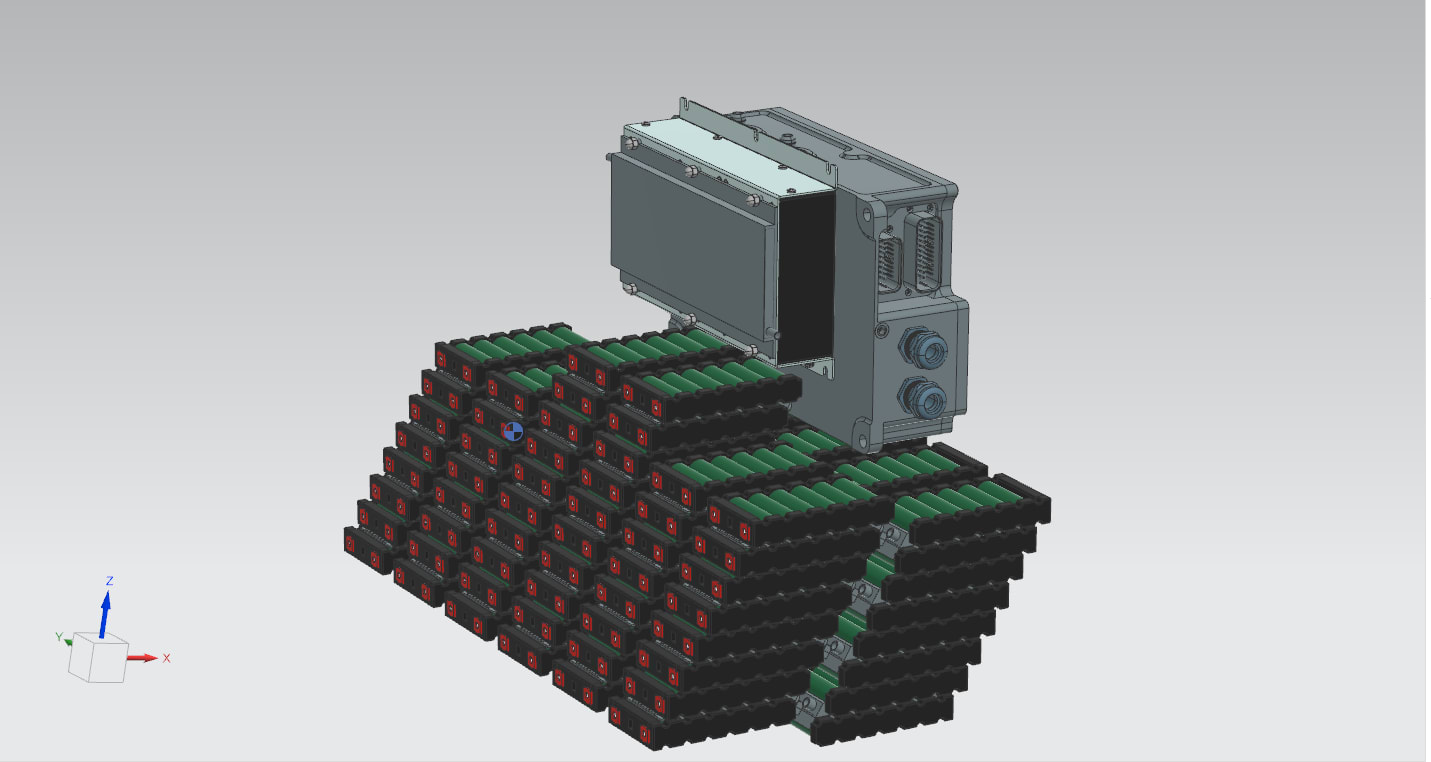 This year's Accumulator pack Design
This year's Accumulator pack Design
Our Chassis team is currently designing our chassis with considerations specifically for a single-seater electric vehicle. Ergonomic measurements were taken from our drivers to assure optimal packaging efficiency while balancing the structural requirements for protecting the powertrain components. The chassis is designed for 4130 Chromoly steel tubing with a 1 inch outer diameter, which provides ease of manufacturing and design. The chassis will be CNC notched and bent by VR3 Engineering, and will be assembled in house.
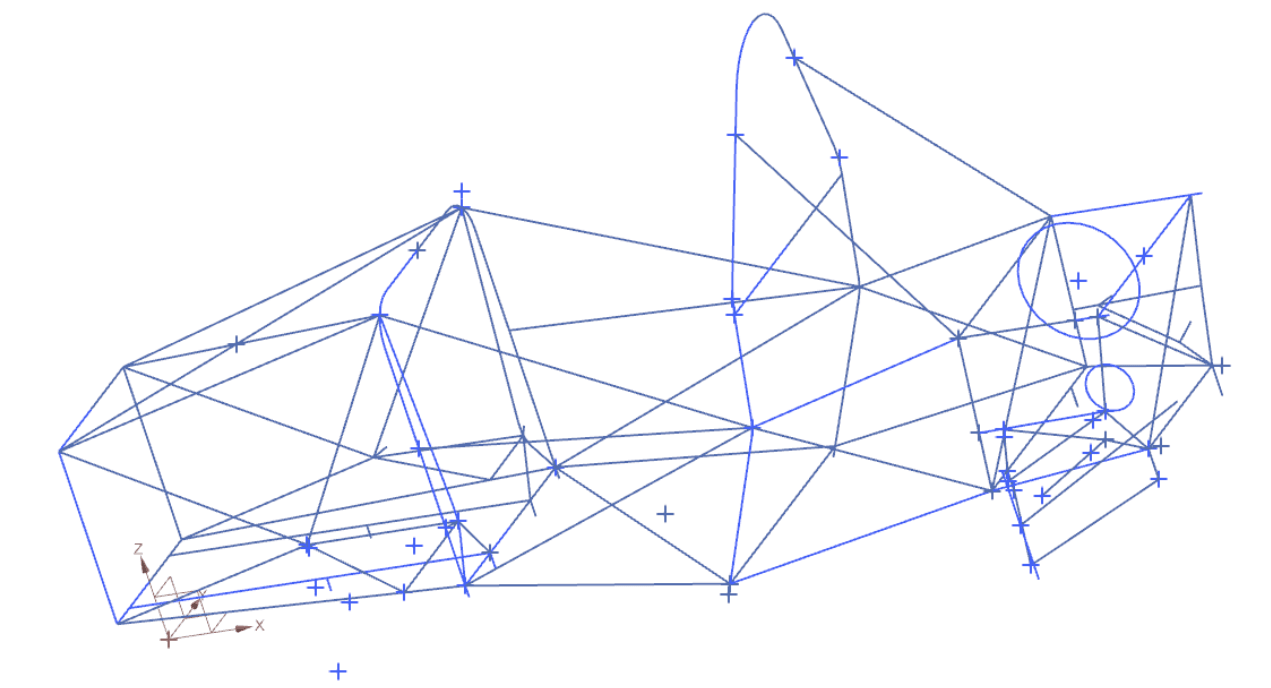 This year's current chassis design Our vehicle dynamics team is currently working on adjusting our suspension points by using kinematic simulations to find optimal pushrod length and overall geometry, so we can have a pushrod-type suspension with 2.5" of travel. We will be machining our own uprights using 6061 aluminum. The rockers for the pushrod suspension will be made from 7075 aluminum.
This year's current chassis design Our vehicle dynamics team is currently working on adjusting our suspension points by using kinematic simulations to find optimal pushrod length and overall geometry, so we can have a pushrod-type suspension with 2.5" of travel. We will be machining our own uprights using 6061 aluminum. The rockers for the pushrod suspension will be made from 7075 aluminum.
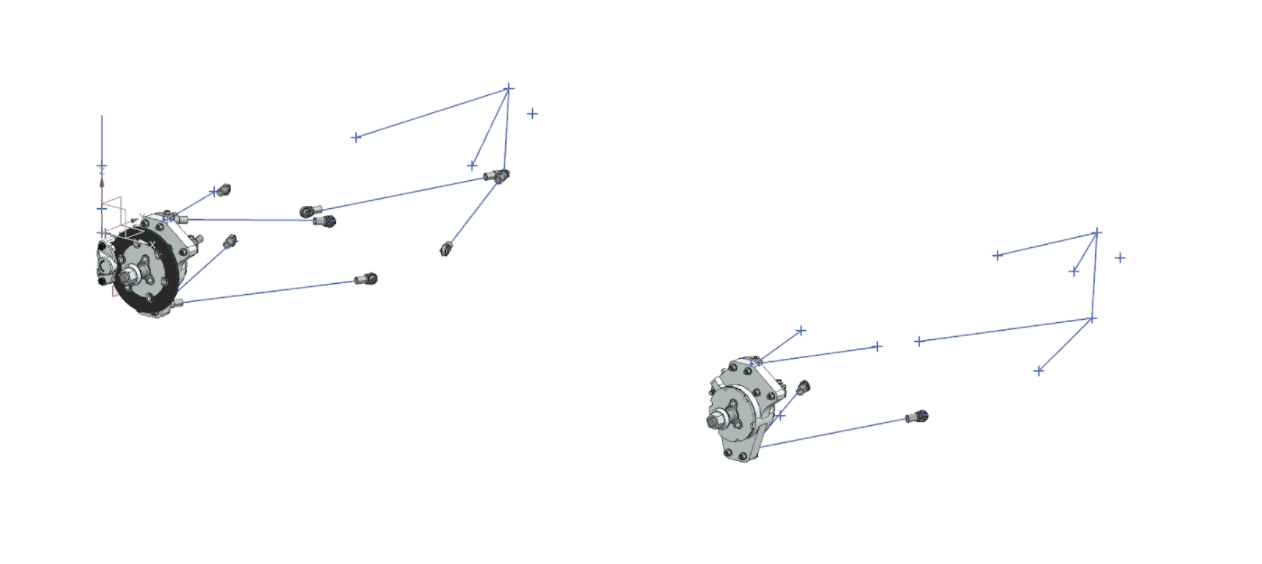 This year's current suspension designOur aeronautics team is currently focused on running simulations and thermal calculations for the cooling of our motors, batteries, and all electronics while minimizing drag and optimizing downforce. They are also designing and fabricating a custom body kit that will be very research-intensive.
This year's current suspension designOur aeronautics team is currently focused on running simulations and thermal calculations for the cooling of our motors, batteries, and all electronics while minimizing drag and optimizing downforce. They are also designing and fabricating a custom body kit that will be very research-intensive. The main goal of this project is to build a cutting-edge race car and give the opportunity to learn and engage in real-world applications and projects for developing engineers and to mentor other students.
Donation Level Special Considerations:
Green and above: All donations and donors to be listed on a plaque to be displayed publicly at UNC Charlotte
Silver and above: A graphic will be included as part of the livery of the car recognizing the donor.
Gold and above: A personalized thank you, and if requested a Resume package of our top engineers within the program.
Donate today to be a part of the future of 49er Racing at UNC Charlotte!
You can double or triple the impact of your gift if your employer participates in a matching gift program. To see if your employer has a matching gift program, click here. If your company matches, complete your matching gift form and submit it to UNC Charlotte via mail (UNC Charlotte Foundation, 9201 University City Boulevard, Charlotte, NC 28223), fax (704-687-7259) or email (mwinslow@uncc.edu).
$49
Green
Your donation can help cover the cost of building this new electric vehicle. $49 will cover multiple items such as one half a battery segment, nuts and bolts, welding gas and wire.
$149
Bronze
Now that we're moving, your donation can help us stop! Brake pads and rotors are wear items. Each test consumes a set of brake pads which are custom made for the FSAE EV car.
$249
Silver
Each competition season the team can wear through as many as 40 tires. Each tire is custom made for FSAE EV vehicles. Your donation can help cover the cost of a single tire.
$449
Gold
Your donation will provide a warm bed and transportation for two very tired engineering students heading and competing at the main racing events.
$1,000
Platinum
Your donation will provide the means for emerging engineers to experiment and research technology typically/potentially not obtainable otherwise; an example would be Carbon Fiber Composite Research. Carbon Fiber is an expensive material and requires expensive equipment for safety and production.
